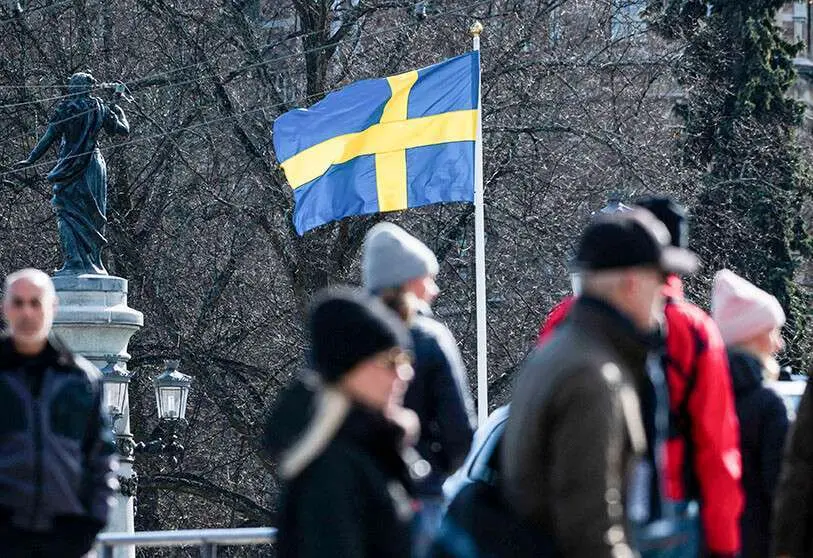"Many will die in Sweden"... but we are right

Stefan Löfven has withstood all the pressures. The Social Democrat Prime Minister of Sweden has not given in to calls from the opposition or the advice of a large group of scientists. His unchanging political line has remained unchanged throughout the whole time we have been in a pandemic, despite warnings from those who showed him another practice for combating it.
On the occasion of the 1st of May, he made a speech to the nation in which he did not hide or disguise the data that makes Sweden the Nordic country with the highest number of victims of the coronavirus: 2,653 deaths, or 256 deaths for every million inhabitants. This is much higher than the 78 in Denmark (452 deaths), or the 38 in Norway (207) and Finland (206). Nor did he paint a more optimistic picture of the future: "Many people will still die [in Sweden]," but he was once again firm in his conviction not to impose restrictions but to appeal instead to the responsibility of each and every citizen. Even in the restrictions there have been no threats of a fine, but simply the recommendation to behave like good individuals from a common collective.
When the rest of the world has already begun different phases of so-called deconfinement, Sweden is not going to experience any transition. Schools and businesses will remain open because they have never been closed, with the sole exception of universities. The only restrictions have been to limit conurbations to a maximum of fifty people. The population has also been responsible for keeping a physical distance, while maintaining the hygiene standards recommended by the World Health Organisation (WHO), and has above all avoided visits to old people's homes which, as in most European countries, have been the focus of the greatest number of infections and deaths, 40% of the cases.
This policy, initially adopted also by the United Kingdom and the Netherlands, although later abandoned by them, has received an initial endorsement by the WHO itself, whose Director of Health Emergencies, Michael Ryan, has stated that "Sweden represents a future model in many ways", alluding to the civility of citizens as the key to success in eradicating the pandemic.
Another WHO advisor, epidemiologist Johan Giesicke, was even more forceful, telling Dagens Nyhetar: "The COVID-19 outbreak has been mishandled all over the world except in Sweden, so that others can learn something".
The line taken by Löfven is providing him with unusual political returns, so much so that he has gone from 43% approving of his government before the pandemic to 63% at the end of April, according to a survey by the Novus Institute, a figure that Ipsos/Sopra-Steria puts at 70%. This is a complete turnaround, allowing the Social Democratic Party to overtake the ultra-conservative Democrats in Sweden in terms of voting intentions (29% to 21%), making Löfven one of the two great leaders to have emerged from the plague; the other is the Italian Giuseppe Conte, in addition, of course, to the renowned German Chancellor Angela Merkel.
Different models and needs to face the post-pandemic, and perhaps waiting for a new outbreak of the virus in the coming autumn or winter. By then it will be possible to look at the examples of those who have best dealt with the enormous catastrophe, an episode in which the collapse of the economy and a certain way of life will necessarily give way to other models. Sweden, at least, shows by its actions that, whatever happens, its attachment to freedom with responsibility cannot be renounced.

